What is it about the Amish life that’s always drawn me?
Perhaps it’s the throwback to simpler times in the way they eschew modern technology in their homes, the romantic scenes along a country road of horse-drawn buggies and one-room schoolhouses, the traditional form of dress or the charming Pennsylvania Dutch accents.
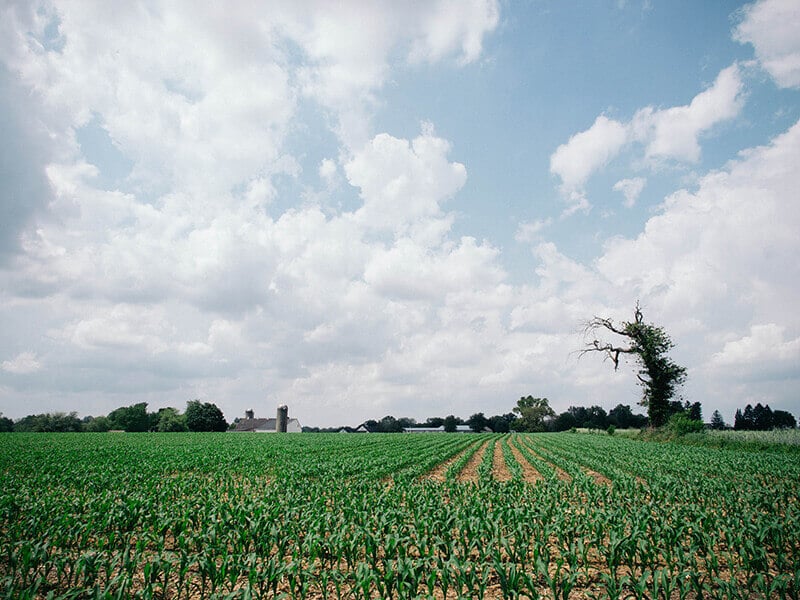
It feels like the pages of a history book opened up before my eyes. Thousands of years of religious faith, persecution in Europe, and eventual settlement in Pennsylvania have created the oldest and largest Amish community in the country, in a sliver of the state called Lancaster County.
The region is evocative of a bucolic bygone era: rustic farmhouses, rolling green landscapes, horses plowing the fields. Holsteins relaxing in the grass. Nary a power line in sight.
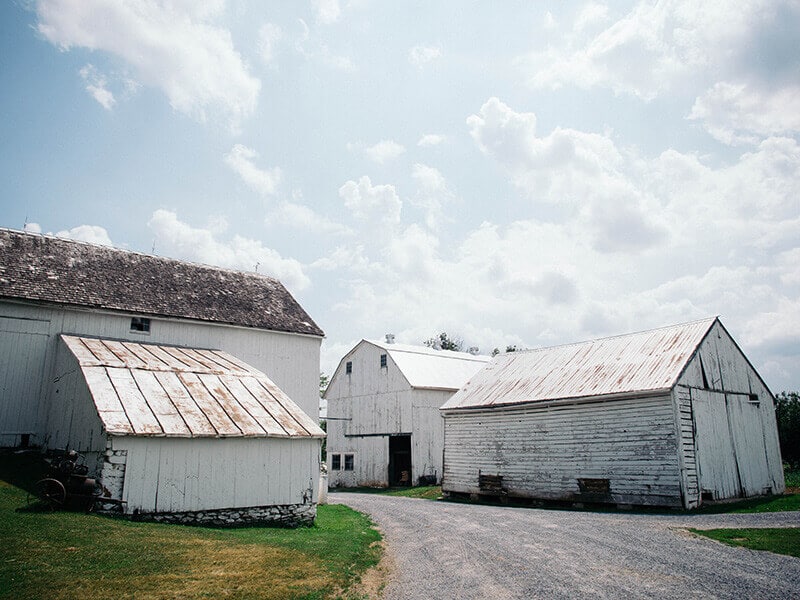
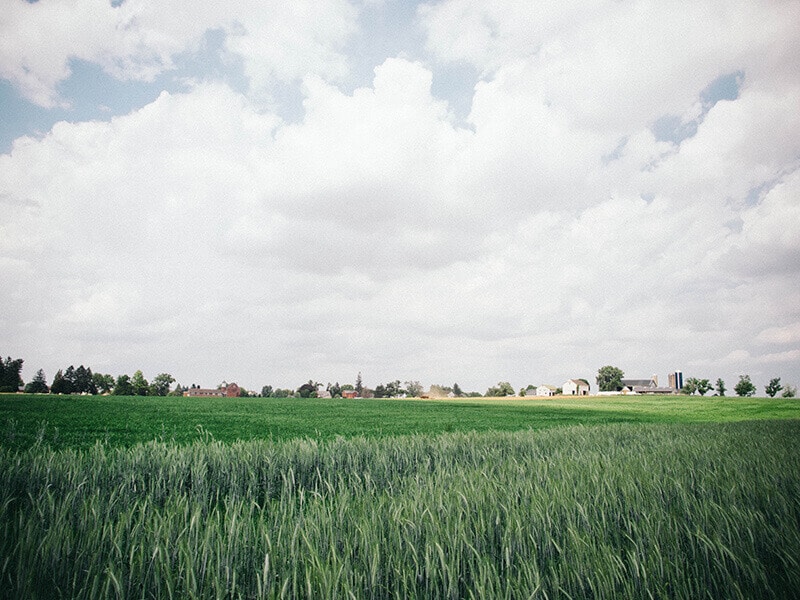
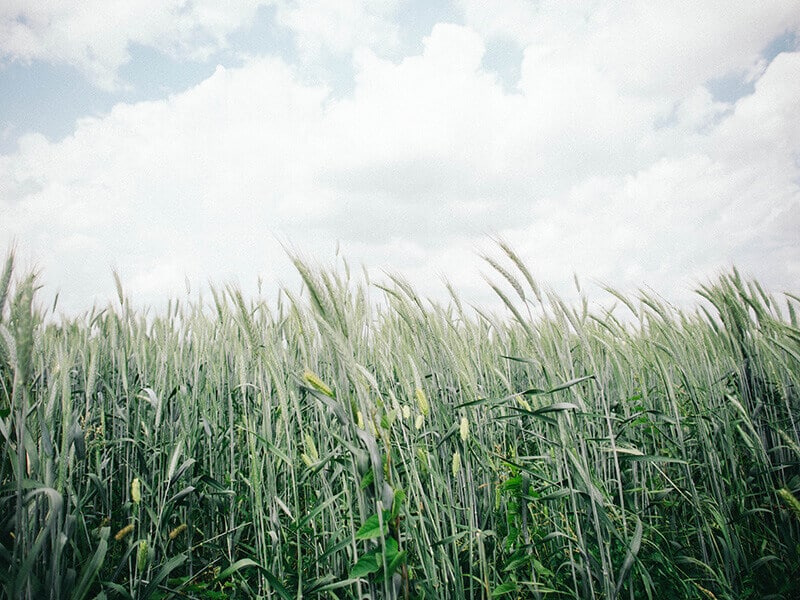
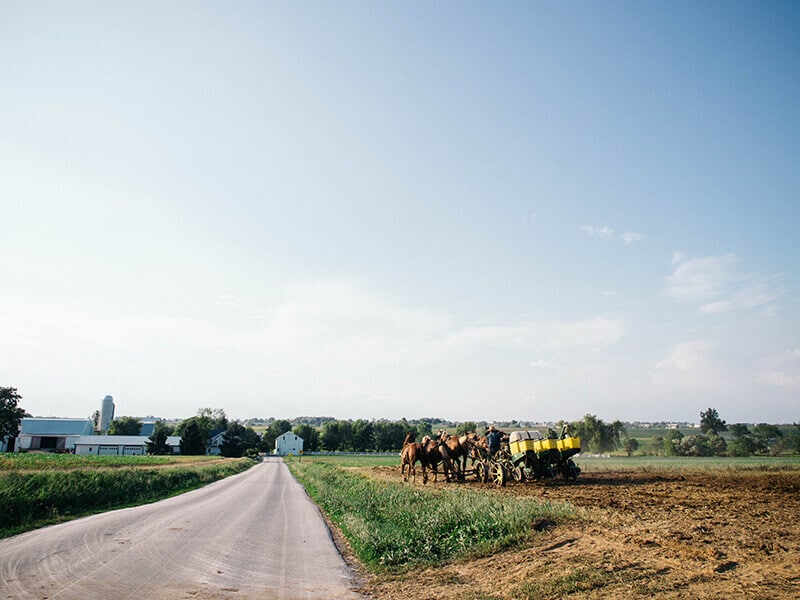
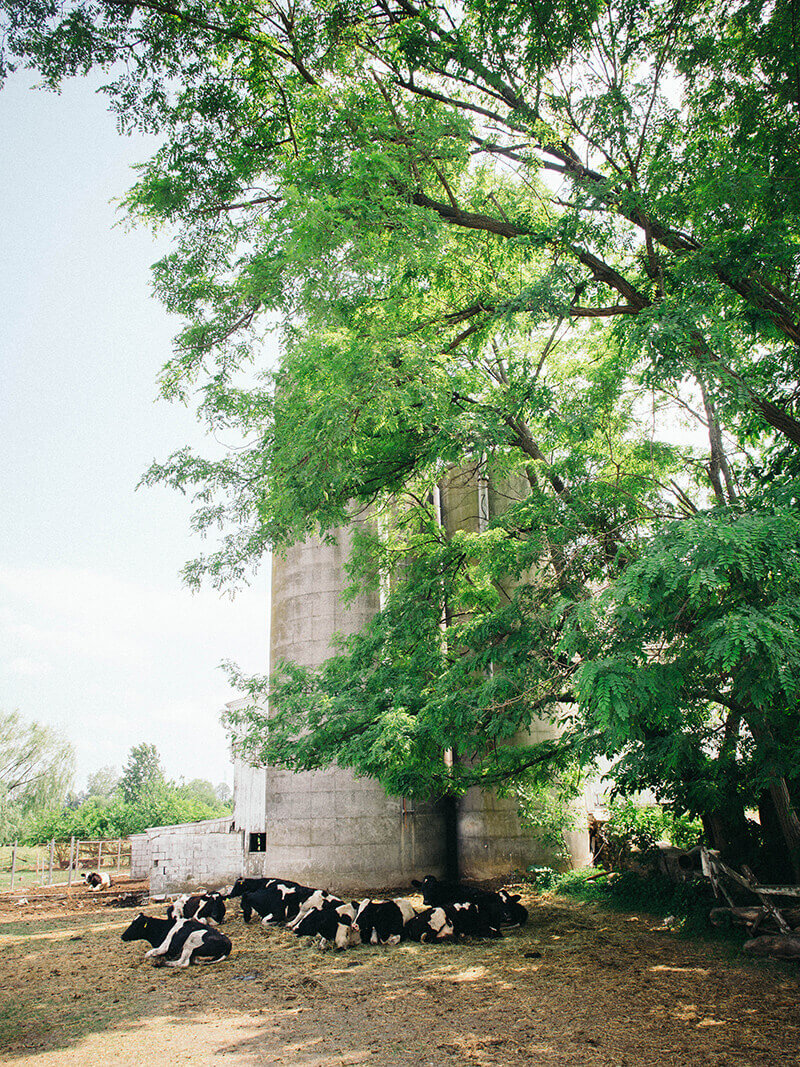
The sides of the road are dotted with the occasional farmstand selling whoopie pies (the local favorite), cookies, cakes, and jams. And down a driveway, one can even find an old-fashioned general store serving up homestyle root beer, freshly fermented.
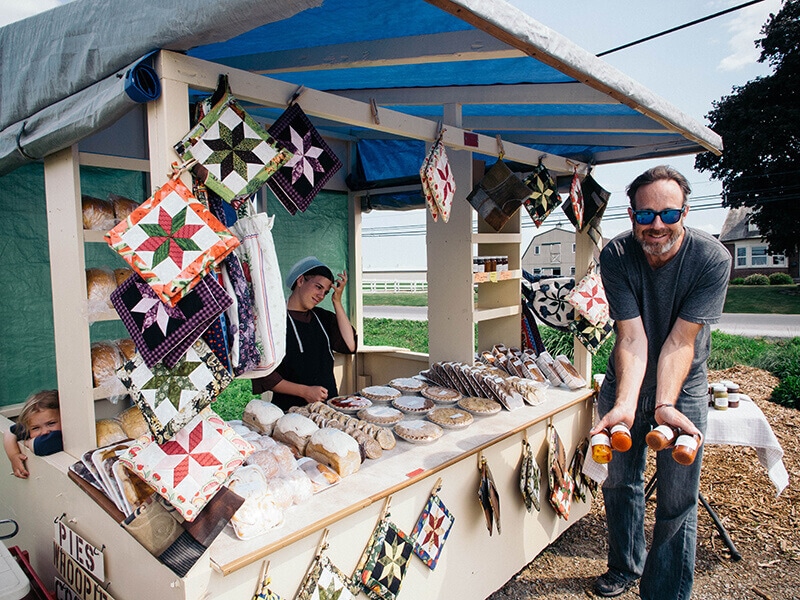
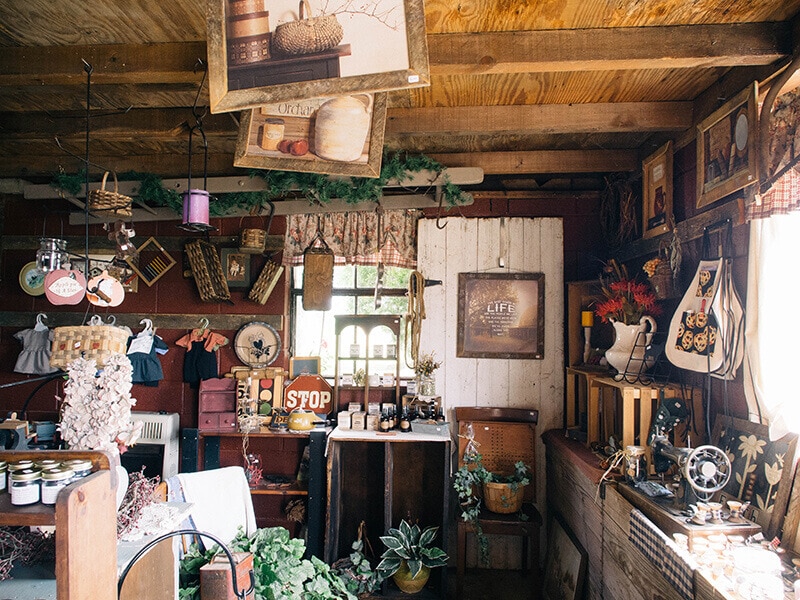
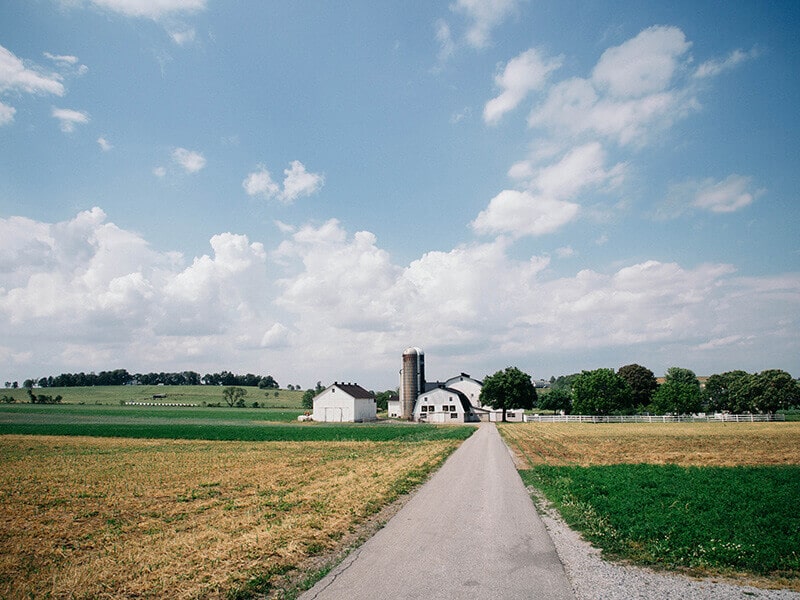
The Amish are members of a conservative Christian faith with roots in the Mennonite community. They’re united in the Anabaptist belief that one must make a conscious choice to accept God in order to be baptized.
Though the language and the culture are usually referred to as Pennsylvania Dutch, the term itself is a corrupted spelling of what is actually Pennsylvania Deutsch, a unique German dialect spoken by the Amish (with no relation to actual Dutch).
The community is largely insulated from the outside world, owing to a devout lifestyle that emphasizes purity, humility, and family and naturally limits interaction with the non-Amish (or their “English” neighbors, as they call it).
But they are not entirely shielded from their surroundings. The Amish vaccinate their children. They sometimes eat out at fancy restaurants. I was even told that buggies driving along the main thoroughfare have been cited for drunk driving!
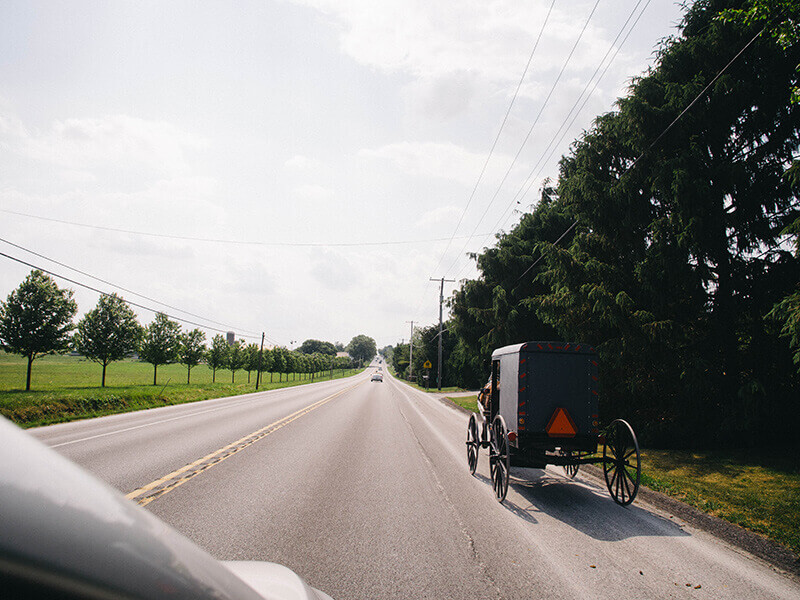
But in accordance with their beliefs, electricity is considered taboo, as are most modern conveniences. Recreation is often found around the house or on the farm, and even instances viewed by outsiders as a rite of passage or everyday occurrence (such as owning a car or posing for a photograph) is unacceptable in the culture, believed to breed pride and inequality. This simple and modest approach is conducive to a life of farming, in which the Amish are well versed.
But what the Amish are perhaps best known for is their distinctive style of dress, a plain-clothed uniform of full skirts and aprons, broadfall trousers and suspenders, all in solid colors with simple hairstyles.
This uniform is what I found incredibly appealing about the people. The women, especially, look like they were plucked out of a Vermeer painting.
Inside a little herbal shop, Lillian, the owner and grower of Meadow View Heirloom Greenhouse, was telling me about her edible farm in Bird-in-Hand, Pennsylvania.
She wore a traditional long dress with her hair in a bonnet, her face free of makeup and framed by a dim glow of light through the window. There was such a lovely humbleness about her as she explained all the different tea blends and lotions she crafted in her shop, and all the chemical-free heirloom vegetables and herbs she tended and sold on her plot.
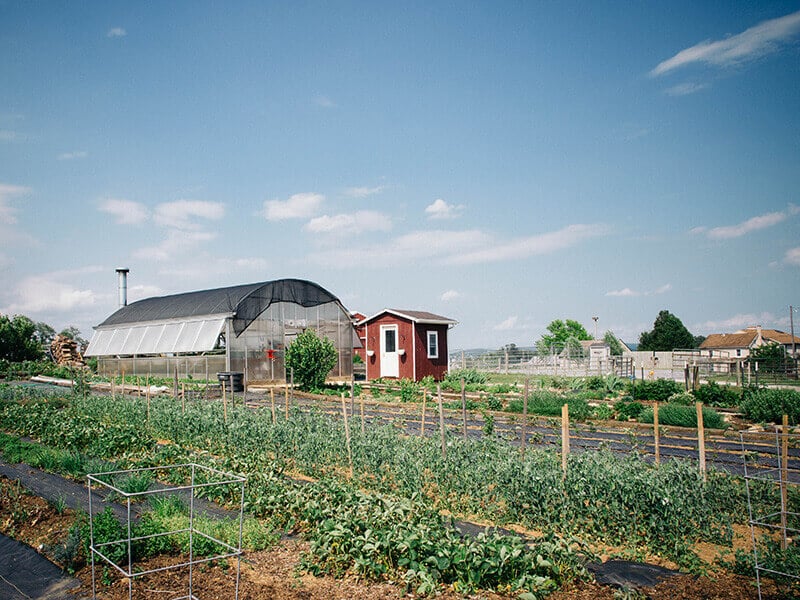
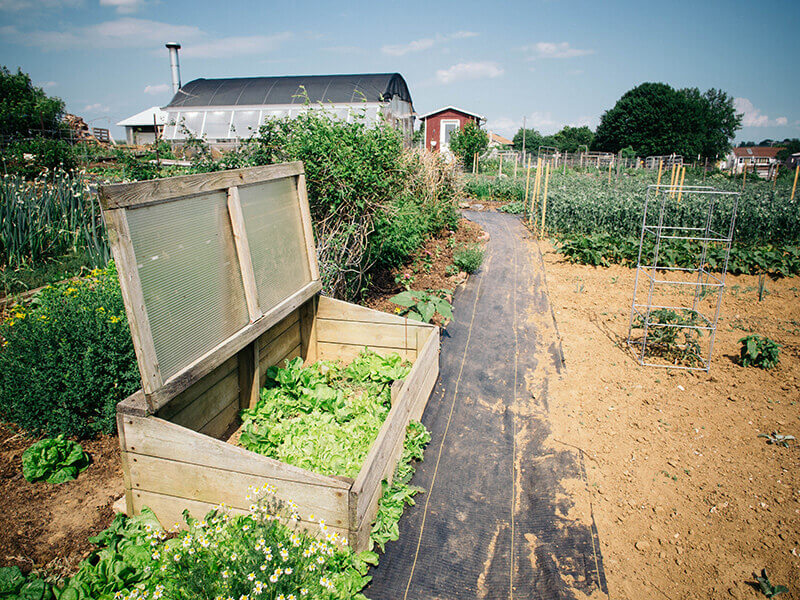
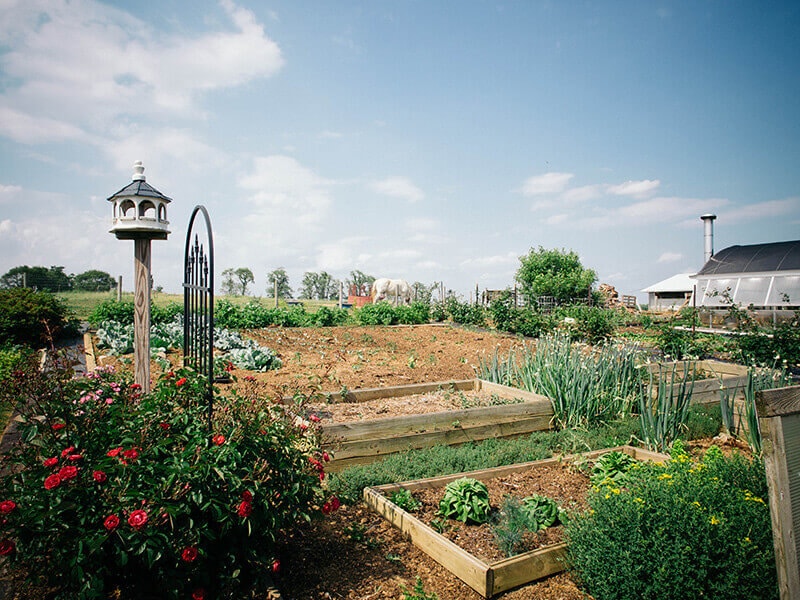
Chemical-free is the key point here. One might think that the antiquated lifestyle of the Amish means a resistance to GMOs, pesticides, and other artificial means of raising crops, but in fact, like many outside farmers, they embrace the use of synthetic fertilizers and chemicals on their land to boost production and deter pests.
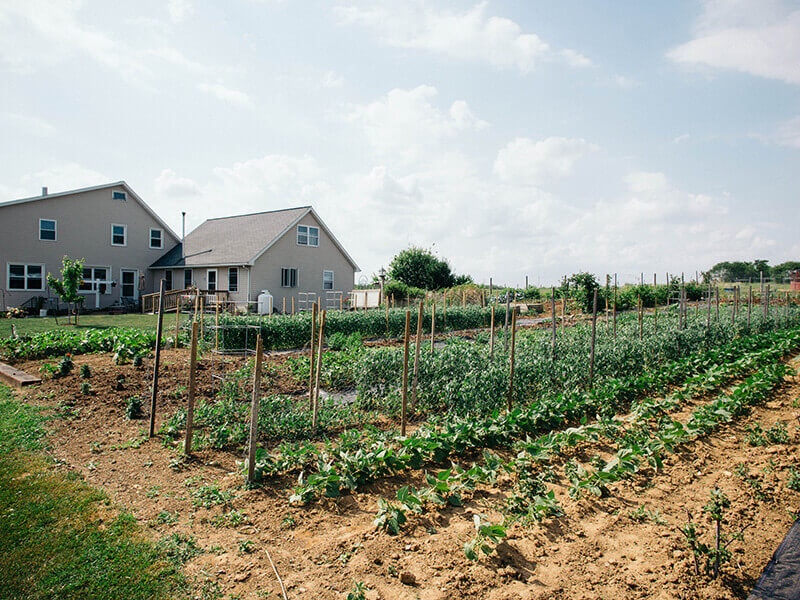
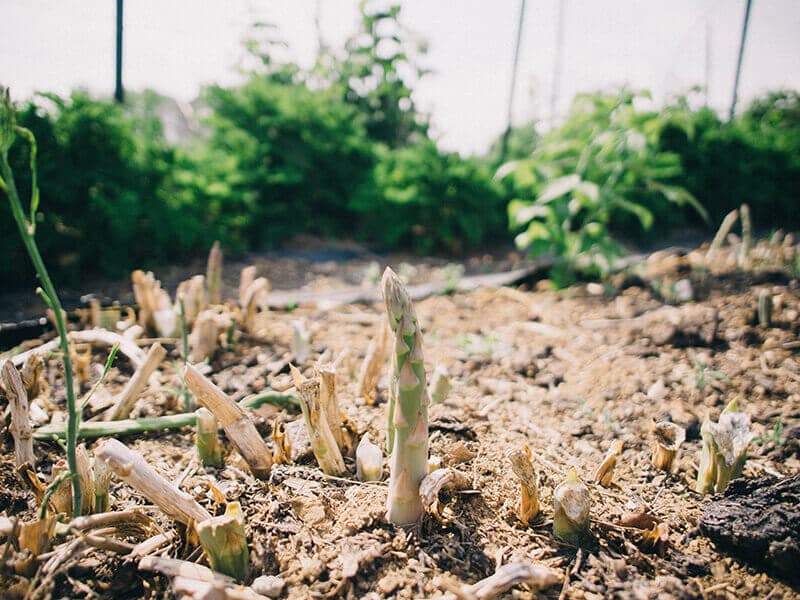
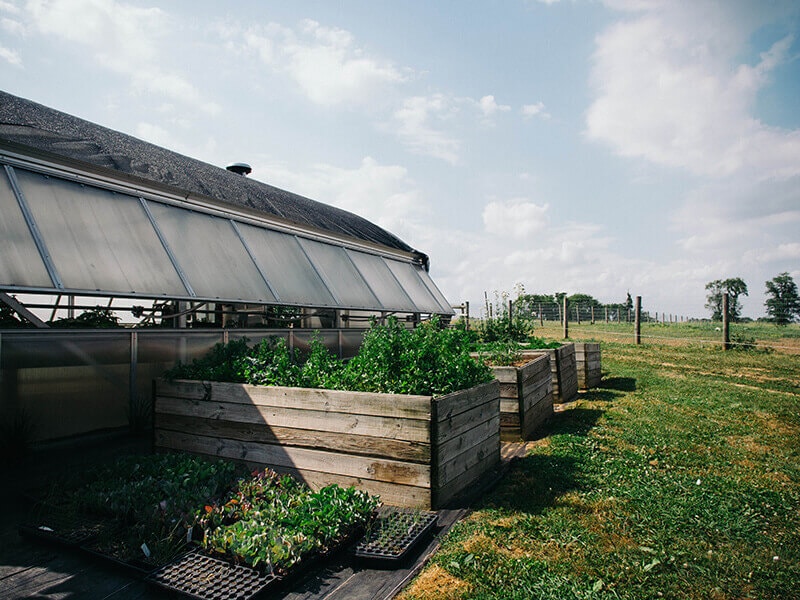
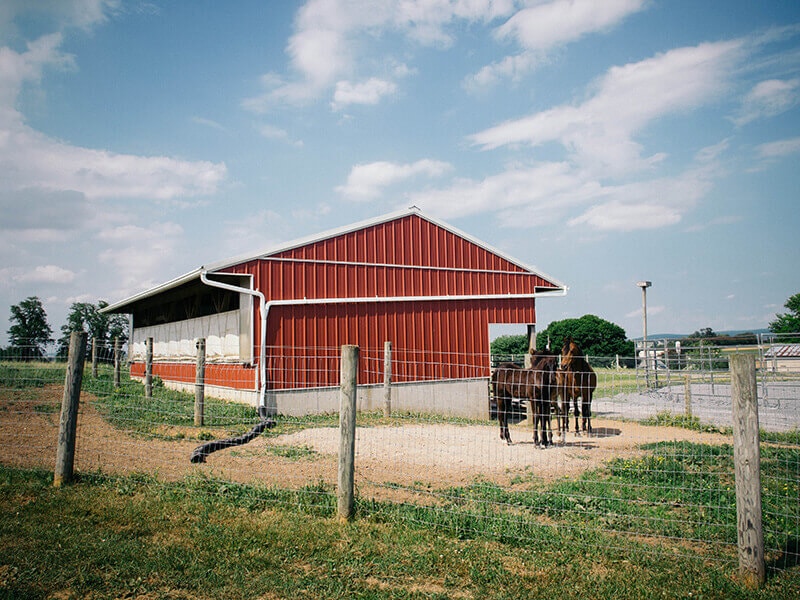
Organic Amish farmers are in the minority, and finding a chemical-free farm like Lillian’s is sometimes still a challenge.
But one can be found if you have a hookup—and during my stay at the Harvest Moon Bed and Breakfast, proprietor Carl took me to Misty Creek Goat Dairy in Leola, Pennsylvania, an Amish farm that produces small-batch, 60-day aged cheeses on its premises.
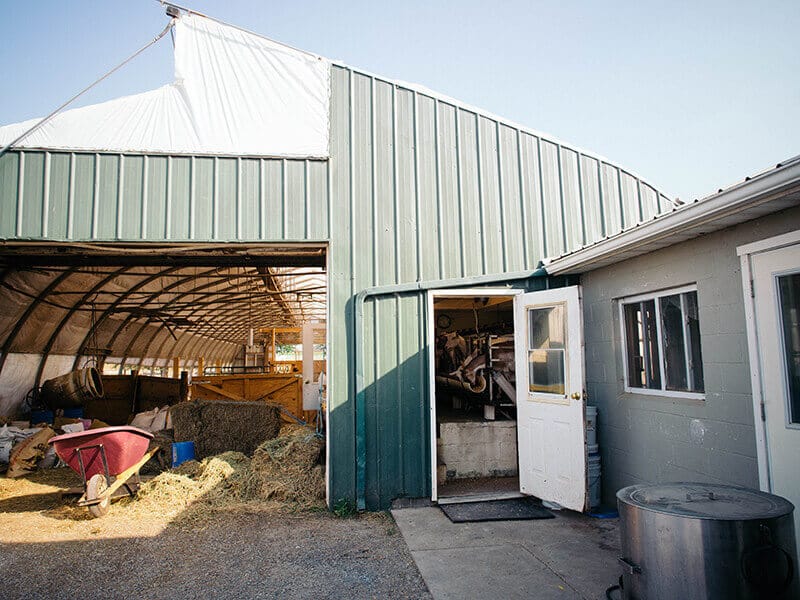
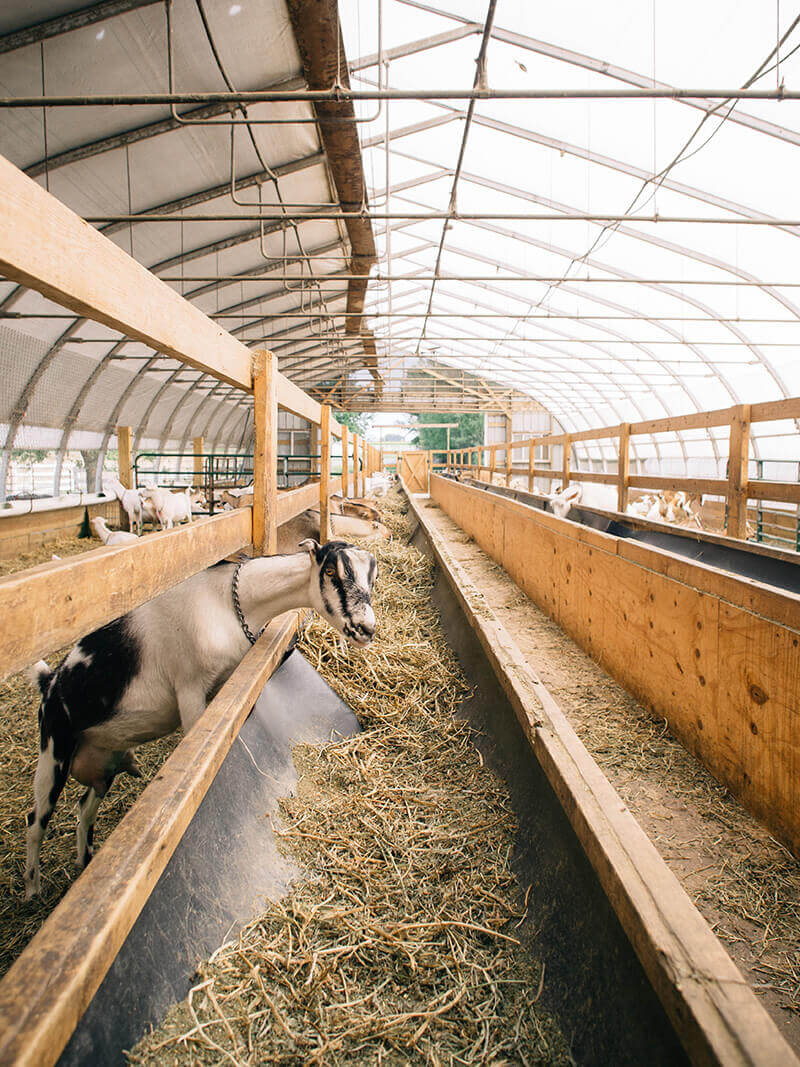
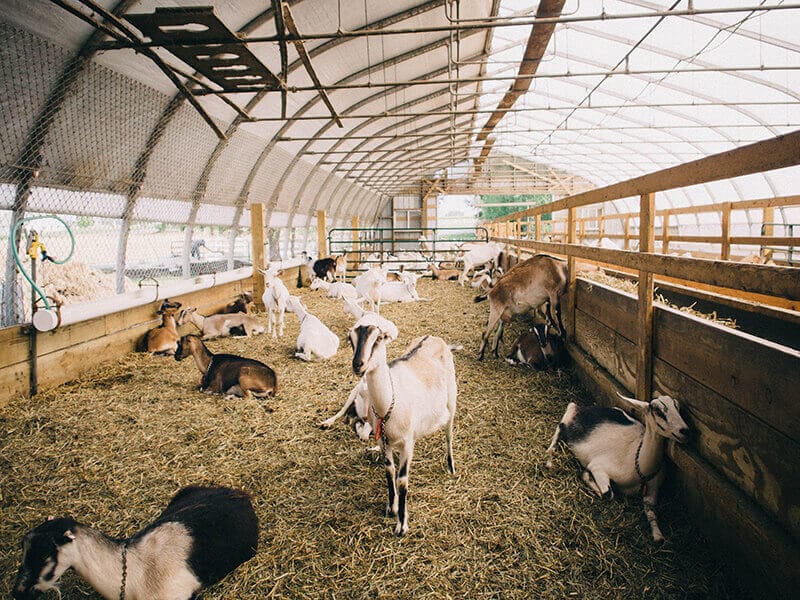
I have always toyed with the idea of raising my own goats one day, and being able to visit a goat dairy was such a delight.
Owner Amos, a gregarious and curious cheesemaker, tends to herds of happy goats that graze on grasses and clovers on his farm. From these goats, he makes the most delectable raw cheeses and fragrant soaps onsite.
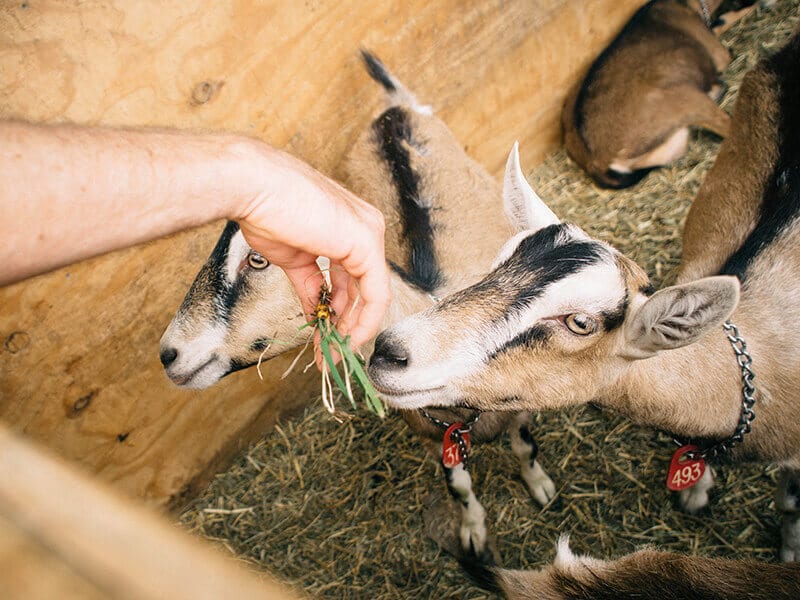
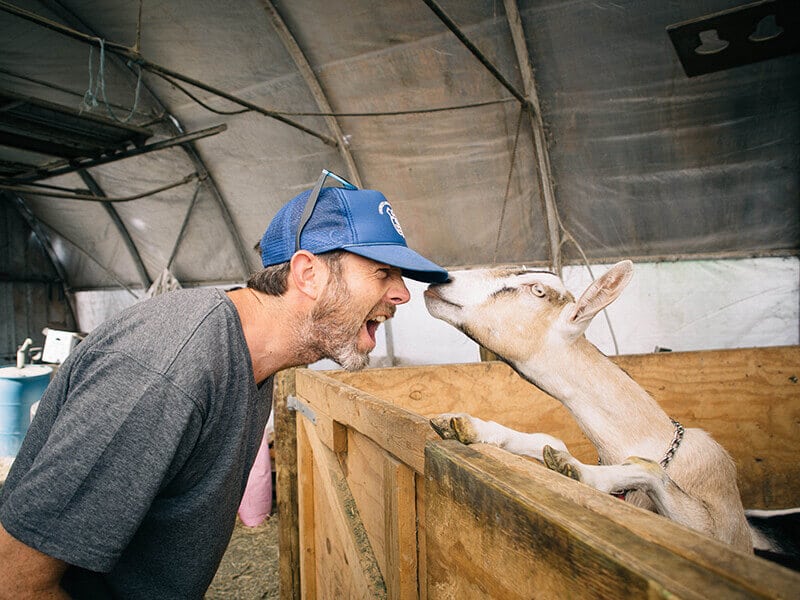
Amos’ specialty is artisan goat cheese with surprising flavors, like his Misty Lovely—a once-accidental creation that starts like feta in the mouth but finishes like cheddar, making it more in line with ricotta salata.
Or his Midnight Dream, whose deep flavors are due in part to being soaked in port. He’s generous with his samples and explained that on his farm, the same cheese produced in spring will taste creamier and richer than cheese produced in fall, which tends to be denser and more piquant—a product of what the goats are eating at the time.
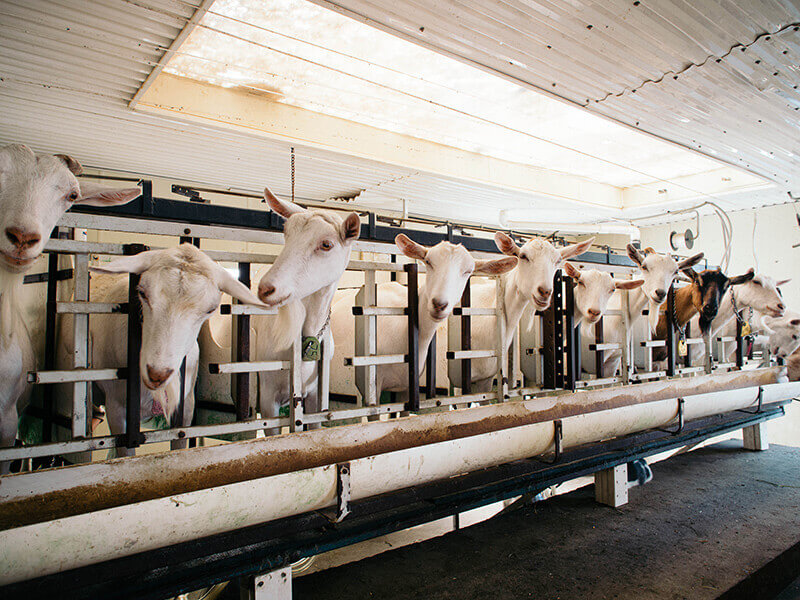
He also said that goat’s milk is more easily and rapidly digestible by the human body than cow’s milk, a fact that stems from the different proteins present in goat’s milk. Theoretically, this could be advantageous to children prone to reflux or to those with cow’s milk allergies.
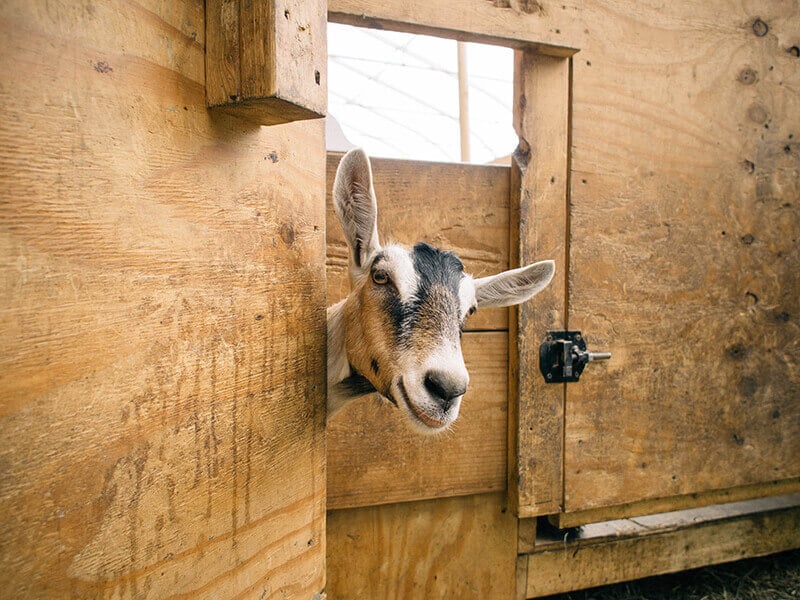
It was also from Amos that I learned the Amish do not fully shun technology as often thought.
Businessmen (and businesswomen) can and do utilize cell phones, hire drivers, and travel out-of-state as needed to sustain their livelihood, so long as they don’t allow those modern conveniences to disrupt their time at home with family.
In fact, their phone use at home is physically removed from the home—to a “phone booth” on the perimeter of the property, seen below as a wooden shed behind the horse.
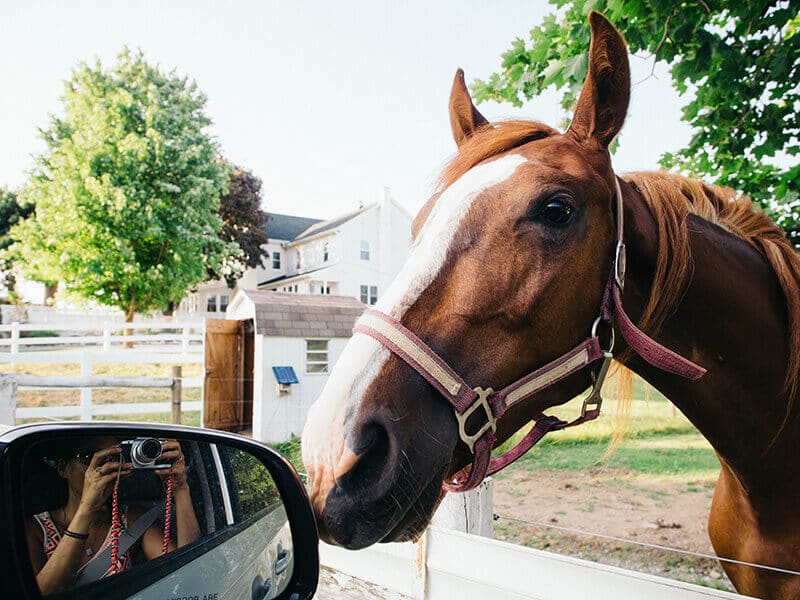
In this fast-paced and ever-connected world, I like to think it’s a philosophy we could all, perhaps, stand to follow more often.
Special thanks to Discover Lancaster for arranging my complimentary stay in Pennsylvania Dutch Country, Carl Kosco and Brian Murr of Harvest Moon Bed and Breakfast, Lillian Riehl of Meadow View Heirloom Greenhouse, and Amos G. Miller of Misty Creek Goat Dairy.
If you are planning an overnight visit to Lancaster County, Pennsylvania, I wholeheartedly recommend the beautiful, antiques-adorned Harvest Moon Bed and Breakfast. Carl also happens to be an accomplished chef, and the breakfast alone is worthy of a stay!

This post is brought to you by Discover Lancaster. Thank you for supporting the sponsors that support Garden Betty.


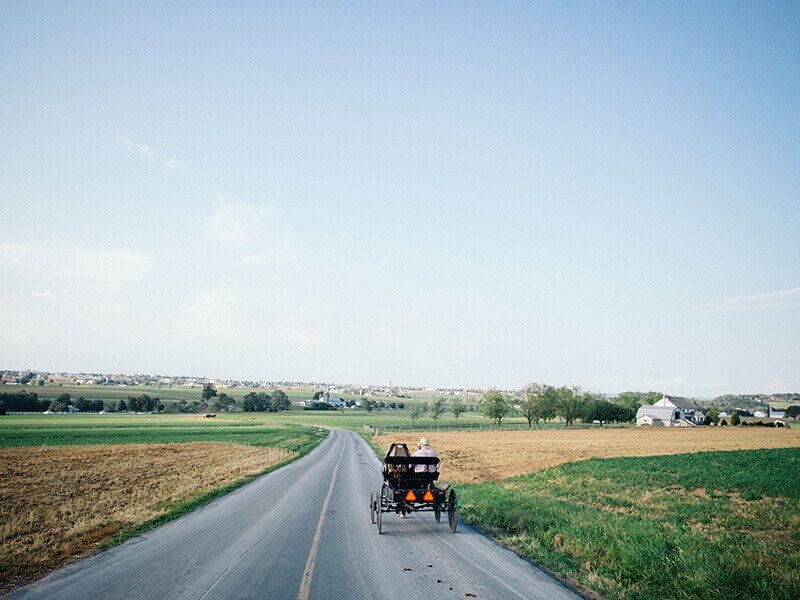
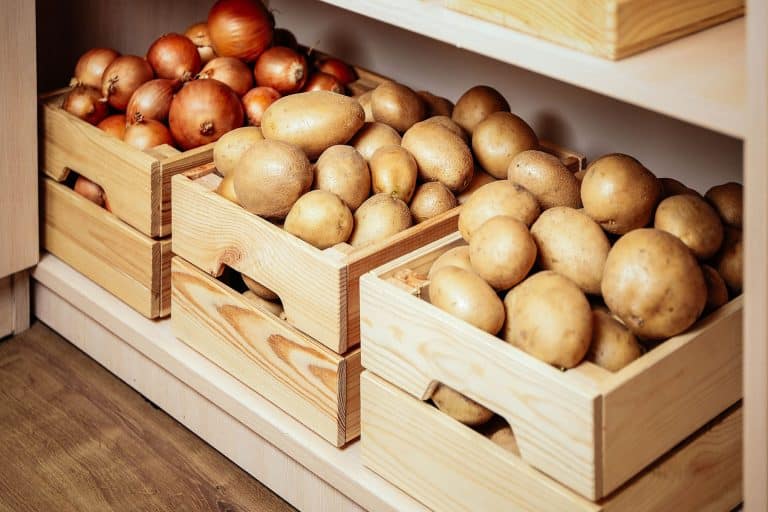







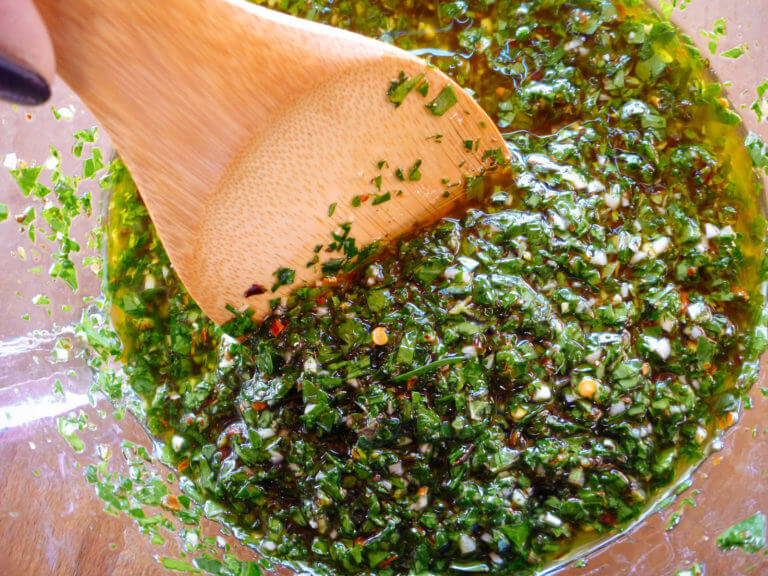
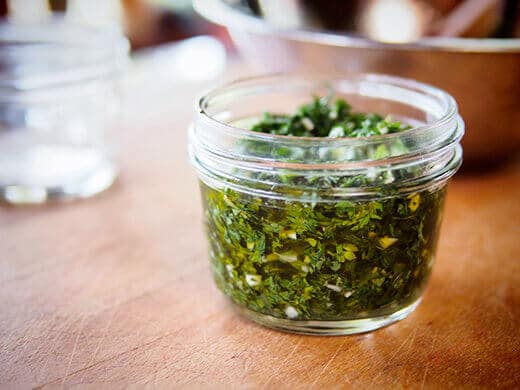
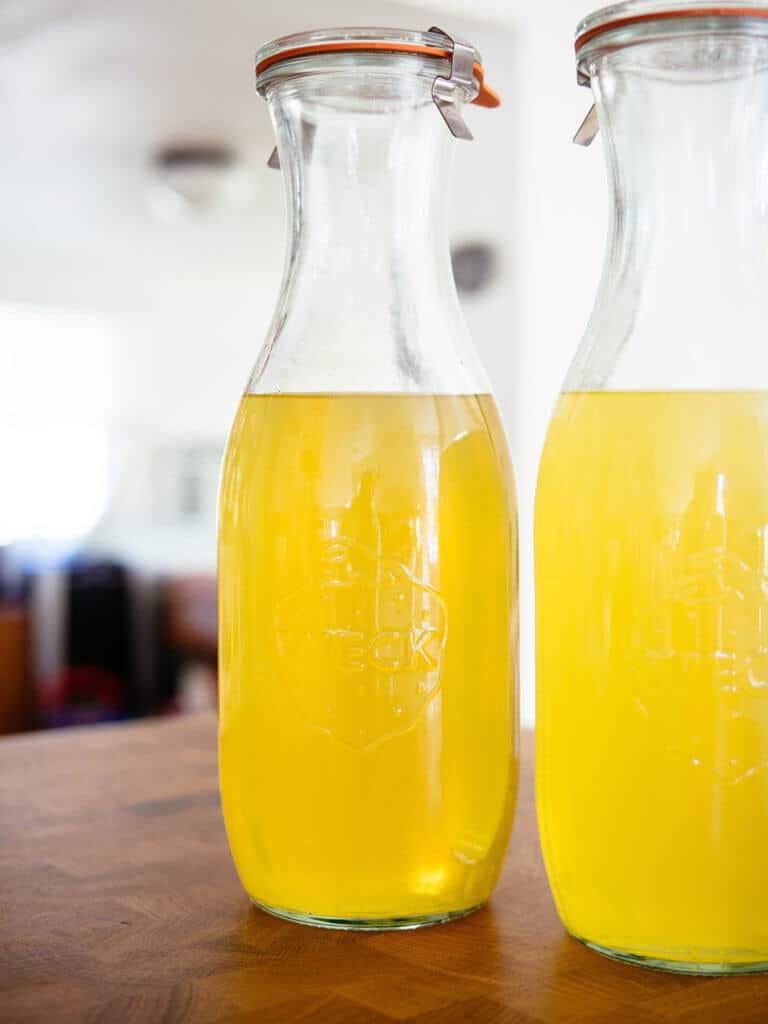


Newsflash: Discover Lancaster in the news | https://t.co/qDSxiYCRot : https://t.co/o1yVvLT4sD
Kathy Vespia Emmons liked this on Facebook.
Maria Pomeroy liked this on Facebook.
Thanks for the mention! RT @lemonpath: A Day in Pennsylvania Dutch Country https://t.co/VKVLc11loc via @gardenbetty
RT @theGardenBetty: Stepping into a bucolic bygone era: A Day in Pennsylvania Dutch Country https://t.co/7c0bHAPRak #amish #lancaster https…
Stepping into a bucolic bygone era: A Day in Pennsylvania Dutch Country https://t.co/7c0bHAPRak #amish #lancaster https://t.co/BsHAQVClur
Exploring the oldest and largest #Amish community in the country: A Day in Pennsylvania Dutch Country https://t.co/kJjhqXFLM3 #gardenchat
RT @theGardenBetty: Meeting the Amish farmers of Lancaster. A Day in Pennsylvania Dutch Country https://t.co/rToeUb2nRN #gardenchat https:/…
Meeting the Amish farmers of Lancaster. A Day in Pennsylvania Dutch Country https://t.co/rToeUb2nRN #gardenchat https://t.co/vH4qPwggis
RT @theGardenBetty: Exploring the #Amish way of life: A Day in Pennsylvania Dutch Country https://t.co/IcuJsayu5n
Charlie Bourgeois liked this on Facebook.
Fantastic! I love Lancaster and the abundance of small family-owned farms still operating there. I grew up in a Mennonite region of eastern PA and have a real appreciation for the simple lifestyle, focus on family, and, of course, the baked goods of the Anababtists. This piece brightened my morning and reminded me of home.
What a wonderful experience to grow up in the area!
Jón-Mark N Lisa Williams liked this on Facebook.
Alison Hoffman liked this on Facebook.
Will Taylor liked this on Facebook.
P. Allen Smith liked this on Facebook.
Greg Hadel liked this on Facebook.
David Miccinello liked this on Facebook.
Exploring the #Amish way of life: A Day in Pennsylvania Dutch Country https://t.co/3Chbz7VuvY @DiscoverLancPA @harvestmoonbnb
A Day in Pennsylvania Dutch Country https://t.co/6oZs6U58BM via @theGardenBetty
Oh you were in my neck of the woods! I’m in Chester County just outside of Lancaster. It is beautiful country here and the farms are amazing. We have quite a farm to table initiative in this area. Gotta love it! Happy you got to experience our happy place!
The farms were pristine! I loved driving through the countryside out there.
Ruth Tomlinson liked this on Facebook.
Chad King liked this on Facebook.
This was such a fun and unique look into this world, thank you! I will never tire of reading about farmers, no matter how or where they farm 🙂
I’m so glad you enjoyed this! The visit was a highlight of my book tour/road trip.
Julie Martin-Paff liked this on Facebook.
Corrie Dunn liked this on Facebook.
Ning Thanasorn liked this on Facebook.
Michael Martino liked this on Facebook.
Yay you were in my town! Lancaster is a pretty odd county I have to admit (which I can easily as I grew up equally here and in St. Petersburg, FL). We have a large agricultural community with a large amount of organic and heritage/heirloom agriculture. A fantastic food and art scene with around 20 art galleries downtown and a multi-ethnic food culture.
First Friday sees about 125 different art galleries, coffee shops, art organizations, bookshops, and restaurants every month. Our theater, the Fulton Opera House, is one of only three theaters recognized as a National Historic Landmark (Mark Twain, Horace Green, and Adelina Patti performed here). We have one of the oldest farmers market in the country, Lancaster Central Market, which is currently housed in a gorgeous red brick building downtown.
Lancaster was even, for one day, the capital of the United States (thanks to a retreating American Revolutionaries). It’s also the home of former President Buchanan and the artist Demuth.
So much going on for such a small city! I love it!
Laura Willson liked this on Facebook.
Meagan Levins liked this on Facebook.
Valerie Garcia liked this on Facebook.
Randall S. Winkler liked this on Facebook.
Jamie Huff Smith liked this on Facebook.
Dan Surma liked this on Facebook.
Louis Miller liked this on Facebook.
Thu TranLe liked this on Facebook.
Eva Merchant Johnston liked this on Facebook.
Lydia Ann liked this on Facebook.
Blogged on Garden Betty: A Day in Pennsylvania Dutch Country https://t.co/FGwnm5hQeL